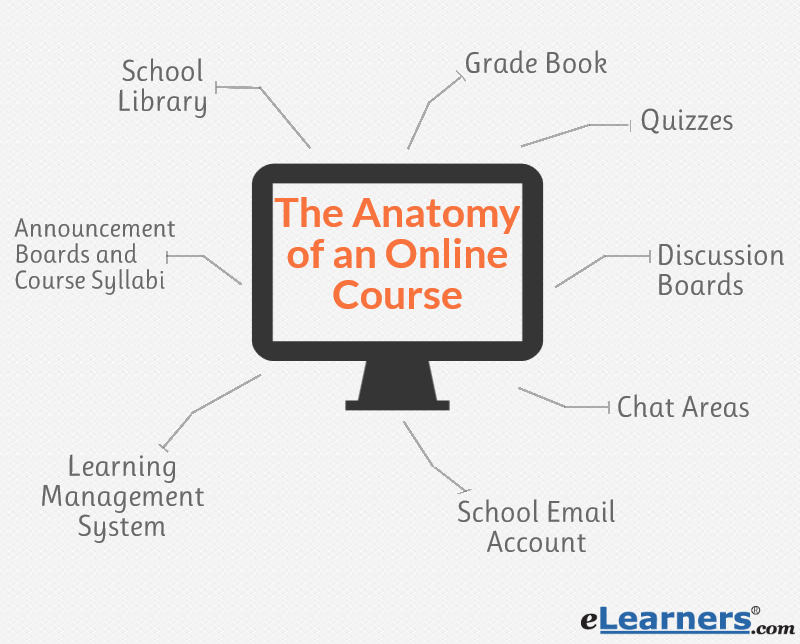 For students who have never taken any online courses before, the concept can be somewhat foreign. Three online instructors and an online student explain the makeup of an online course, the major expectations for these courses, and the qualities online students should have to succeed.
For students who have never taken any online courses before, the concept can be somewhat foreign. Three online instructors and an online student explain the makeup of an online course, the major expectations for these courses, and the qualities online students should have to succeed.
Major Components of Online Courses
Online courses are based around the school's learning management system, which is the software system for the e-learning program. "These learning management systems have a tutorial which guides you on how to use the web course and can help a novice person," says Robert Stephens, who is pursuing his Master of Nonprofit Management online at the University of Central Florida.
Students need to know how to get into their school email account and check it daily, says Bob Barrett, who teaches online MBA courses at Franklin University. Students also need to know the typical Microsoft Office products, such as Word, Excel and PowerPoint.
Online courses also have announcement boards and course syllabi, which students should check frequently to stay current on assignments, Barrett says. Courses have a discussion board wherein students post responses, questions and replies to other postings. In online discussion board postings, be sure to follow "netiquette" or "Internet etiquette." "Be respectful of other people's opinions, ethnicity and gender," Barrett advises.
Additionally, there is a grade book in the web course system, as well as a chat area where students can interact with each other for group projects or chat with the instructor. The instructor can also hold live chat sessions with the entire class, Barrett says.
Online courses often have quizzes based on the readings and discussions, says Al Turgeon, a professor who teaches online courses on turfgrass management at Penn State World Campus. "The quizzes demonstrate a balanced approach between the acquisition of knowledge and the use of problem-solving skills." Then, there are mid-terms and final exams, which students complete online within a certain timeframe, Turgeon says.
The web courses also have access to the school's library. Mary Ann Feldheim, chair and associate professor at the University of Central Florida's Department of Public Administration, requires her students to complete tutorials and quizzes on how to access UCF's library online to obtain resources for the course.
What to Expect from Online Courses
"In the online medium, I'm asking more of the students than in a face-to-face class," Feldheim says. "Online courses are more labor intensive than a face-to-face class because it takes longer to type something and edit it, than to say something in a classroom. Also everyone is required to post and respond, with grades attached to these discussions."
Stephens also admits that online courses are more time-consuming than face-to-face courses. "Be prepared to do a lot of reading and writing. Some discussion posts are extensive and require sourcing."
Stephens says he spends 10-15 hours each week during the evenings and weekends on schoolwork. His work includes weekly discussion postings and readings, short quizzes, a mid-term exam, a final exam, and a final project that is due at end of the course.
The material learned in these online courses can also be applied in daily life. "The online course becomes a living thing," Turgeon says. "Most of the students are working in the field and are often times doing things that are applicable in real life."
Qualities of an Online Student
Most online students these days have families and jobs. "If you have good time management skills and are organized, you can do well in an online course," says Stephens, who has a family and works full-time.
"For someone to do to an online class, they must be very self-disciplined," Feldheim says. "Online courses really do not lend themselves to procrastinators." She says with online courses, there are sometimes Internet server errors and technical difficulties, and people cannot wait until the final deadline to turn in assignments.
Online students have to schedule the course into their daily life. "Anything in life worth doing is worth doing well, and anything worth doing is worth scheduling," Turgeon says.
Sometimes what students learn from the course goes beyond the subject matter, he says. "You learn how to discipline yourself, develop problem-solving skills, and learn how to schedule and prioritize your time."
